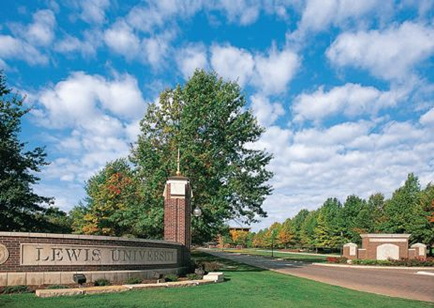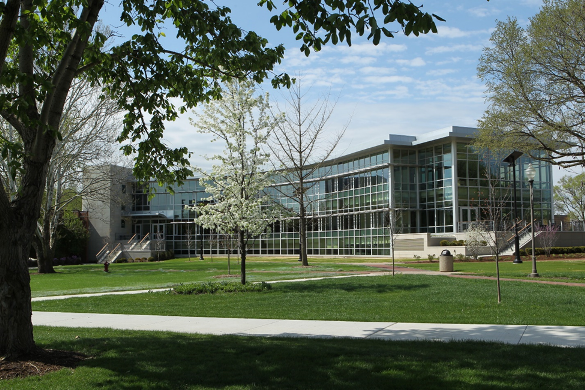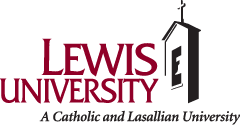|
General Information
Call for Papers
Call for Industry Presentation and Papers
Call for Student Posters
Submit a Paper
Travel & Lodging Info
Preliminary Program
Keynote Speakers
Workshops
Registration Information
Sponsorship Information
Sponsors
|
Workshops
Friday, May 19, 2023
9:45 AM
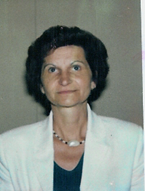 |
Dr. Mariana Hentea
|
Mariana Hentea earned her PhD and MS in Computer Science, MS in Computer Engineering, and BS in Electrical Engineering. She holds a CISSP certification from ISC2. Her current research is focused on Smart Grid and DER systems, real-time systems security and performance, network security design and architecture, and use of Artificial Intelligence techniques for information security management, security risk management, network management, and process control. As a member of IEEE Standards Association, she promotes Security and Privacy awareness to Engineers, managers, regulators, and consumers. She is a member of IEEE Smart Grid, IEEE Power & Energy Society, IEEE Computer Society, ISC2 and ISSA organizations. Her book Building an Effective Security Program for Distributed Energy Resources and Systems: Understanding Security for Smart Grid and Distributed Energy Resources and Systems was published by Wiley in April 2021.
Addressing the Impacts of Adversarial Artificial Intelligence to Cybersecurity
While Artificial Intelligence (AI) and Machine Learning (ML) have become increasingly common and necessary to benefit governments, industries, organizations and societies at large, there is an increasing concern about the use of these technologies in an unethical manner. According to recent research and trends, the market of these technologies used for cybersecurity will grow from $8.6 billion in 2019 to $101.8 billion in 2030. However, the application of AI and ML in cybersecurity poses security and ethical concerns. As cybersecurity models based on AI/ML become effective at detecting threats, bad actors are finding ways to alter and confuse the models - called model poisoning or machine learning poisoning. This is a field called adversarial machine learning, or adversarial AI. Bad actors study how the underlying models work and either confuse the models or focus on a wide range of evasion techniques, essentially looking for ways to circumvent the models. Therefore, there is a sustainable interest in securing AI systems from adversaries. This tutorial is focused not only on different aspects of offensive cyber activity - attacks that use AI and attacks against AI - including examples of cyber attacks and attack surfaces, but also in discussing a sustainable interest in securing AI systems from adversaries. Therefore, this tutorial introduces AI security risk management frameworks, recommendations on risk identification and mitigations including how to best protect AI systems from malicious attacks as well as standards and guidelines on how to develop responsible and trustworthy AI use and development.
Friday, May 19, 2023
10:45 AM
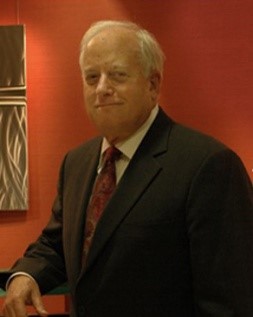 |
Howard Rockman
Registered Patent Attorney and Partner with Rockman, Videbeck & O'Connor
|
Howard B. Rockman is a registered patent attorney and partner with Rockman, Videbeck & O'Connor. Howard represents clients in litigation of patent, copyright, trademark and trade secret cases in Federal and State Courts, as well as clients seeking to secure domestic and foreign intellectual property rights before the U.S. Patent and Trademark Office, the U.S. Copyright Office, and similar intellectual property offices throughout the world.
Industry Experience
Howard began his legal career as a Patent Examiner at the U.S. Patent and Trademark Office before moving on to his role as an Assistant Attorney General at the U.S. Department of Justice. He worked in the Antitrust Division and Patent Litigation Sections of the Justice Department.
Teaching Positions
Adjunct Professor of Intellectual Property Law: John Marshall Law School, University of Illinois at Chicago College of Engineering, Northwestern University College of Engineering. Author of Textbook: "Intellectual Property Law for Engineers and Scientists," John Wiley & Sons (2004)
Professional Activities
- American Bar Association, Intellectual Property Law Section
- Institute of Electrical and Electronic Engineers (IEEE)
- U.S. Army Corps of Engineers and Judge Advocate General Corps 1960-1968
Education
- The George Washington University Law School, J.D. with Honors, 1963
- Drexel University, B.S. Mechanical Engineering, 1959
Bar and Court Admissions
- U.S. Patent and Trademark Office
- Supreme Court of Illinois
- Court of Appeals of Maryland
- U.S. Supreme Court
- U.S. Court of Appeals for the Federal Circuit
- U.S. Court of Appeals - Seventh Circuit
- U.S. District Court - Northern District of Illinois, Trial Bar
Tutorial: Intellectual Property and the Engineer
Intellectual Property and the Engineer
- Introduction
- Intellectual Property Basics
- Patents
- Trademarks
- Copyright
- Trade Secrets
Click here for Mr. Rockman's complete outline for the tutorial.
Friday, May 19, 2023
1:15 PM
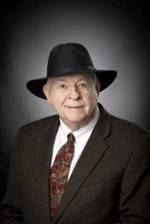 |
Dr. John Talburt
|
John R. Talburt, PhD, IQCP, CDMP, is the Acxiom Chair of Information Quality and Director of the Information Quality Graduate Program at the University of Arkansas at Little Rock. Previously, he led the Data Research and Development group for Acxiom Corporation where he implemented their Total Data Quality Management program. He is a member of the U.S. Technical Advisory Group (TAG) to the International Organization for Standardization (ISO) in data quality, and Lead Data Governance Consultant for Noetic Partners. He is an inventor for several patents related to customer data integration and the author of numerous research papers on information quality and entity resolution. His books include "Entity Information Life Cycle for Big Data: Master Data Management and Information Integration" (Morgan Kaufmann, 2015), "Entity Resolution and Information Quality" (Morgan Kaufmann, 2011), "Data Engineering: Mining, Information and Intelligence" (Springer, 2010), and "Information Quality and Governance for Business Intelligence" (IGI Global, 2014).
A Roadmap for Building a Successful Data Quality Program: How to Get Started, and How to Assess and Improve What You Have
The old saying "Garbage in means garbage out!" is as relevant today and it was in the past. Accurate reporting, business intelligence, and data analytics can only be achieved using high-quality data. Yet many organizations either do not have a data quality program and have never tried to measure the quality of their data, or they just focus on standardizing source data. Having a complete, ongoing program to measure, monitor, and improve the quality of data is a competitive advantage for an organization in today's data driven economy. A data quality program is also an essential enabler of a data governance program. This tutorial is primarily directed to participants whose organizations are trying to start a comprehensive data quality program or whose organizations are wanting to assess and improve the capability of their existing data quality program. Participants in the tutorial will learn
- How to define data quality in terms of data requirements and data standards
- How to apply the proven principles of total quality management (TQM) to improve the quality of your data and data processes including a hands-on exercise
- How to get away from reactive supply-side data quality management and transform your operations into demand-side data quality management to get ahead of data quality issues and continually improve data operations
- Understand the new ISO 8000-61 reference model for data quality management and what is required to be in compliance with the standard
- How to interpret data profiling results - How to use column profiling, frequency profiling, pattern profiling, and data redundancy profiling to assess data, includes a hands-on exercise
- Introduction to the Data Quality Assessment Framework (DQAF) for building a comprehensive system for data quality measurement
Friday, May 19, 2023
3:45 PM
 |
Dr. Erik Baker
Associate Professor of Aviation and Transportation, Lewis University
|
Dr. Erik Baker is an Associate Professor of Aviation and Transportation at Lewis University. He earned his Ph.D. in Aviation from Embry-Riddle Aeronautical University. His research interests span aviation human factors, psychology, situation awareness, and fatigue. Dr. Baker has over 21 years and 4,500 hours of international overwater flight experience in seven different military and commercial aircraft and helicopters. He is a peer reviewer for Collegiate Aviation Review International (CAR-I), International Journal of Aviation, Aeronautics, and Aerospace (IJAAA), and the Journal of Aviation/Aerospace Education & Research (JAAER). He is Co-Director of the Colonel Stephen S. and Lyla Doherty Center for Aviation and Health Research at Lewis University.
Lewis University Aviation: A Tour and Tutorial on Aviation Facilities and Technologies
In this tour and tutorial, Dr. Erik Baker and other Lewis University Aviation Department faculty and staff will show attendees the aircraft and aviation facilities of Lewis University, highlighting the purpose and operation of electrical and electronics equipment and software involved, from air traffic control, weather radar, flight simulators, unmanned aircraft systems, maintenance equipment, to flight management software. Current and upcoming advancements as well as open challenges will be discussed, opening the potential for electrical, electronics and software engineering researchers and developers to apply their works in the aviation field. Lewis University is an institutional member of the University Aviation Association (UAA) and an accreditation candidate for the Aviation Accreditation Body International (AABI).
The Lewis University Aviation department is a national leader in aviation education, established in 1932, the Lewis University name is well known and highly regarded for giving aviation graduates a strong professional network to tap into and a competitive advantage. Lewis Aviation has active partnerships at both O'Hare and Midway International airports and has its very own regional airport right on-campus, providing students with total immersion into the aviation industry that is simply unmatched by programs in more rural locations.
Saturday, May 20, 2023
9:45 AM
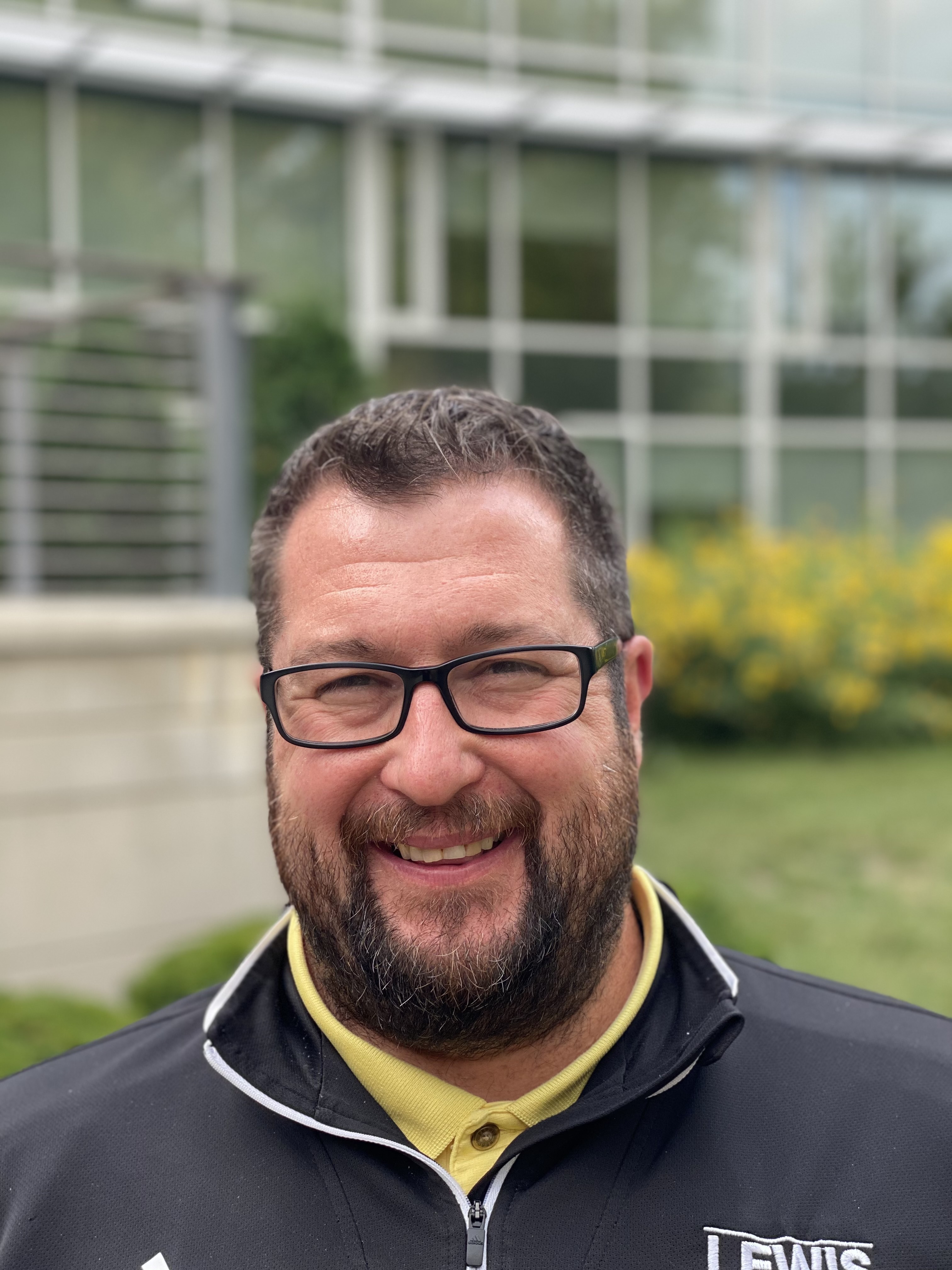 |
Jason Keleher
Professor and Chair of Chemistry
Lewis University
|
Dr. Jason Keleher received his Ph.D. (Organic Chemistry) from Clarkson University (New York) in 2004 under the guidance of the late Dr. Yuzhuo Li working of the "Development of Next Generation Consumable Technologies for Chemical Mechanical Planarization of Cu/Low K Devices". After graduate school, Jason worked as a postdoctoral research scientist at Komag Inc. (Now Western Digital Corporation) in the R&D Division where he worked on the design of next generation texturing processes for magnetic thin film media. From 2005-2009, Jason held the position of a senior research scientist at Cabot Microelectronics Corporation. During this time, he provided fundamental understandings of the chemical reaction mechanisms that occur at nanoparticle/polymer interfaces and was awarded the 2007-2008 Inventor of the Year. After Cabot Microelectronics, Jason wanted to impact science in a different way, so he jumped into the world of academia and is currently Professor and Chair of Chemistry at Lewis University. Jason was honored with the Distinguished Lasallian Educator Award, the American Chemical Society Stanley C. Israel Award for Advancing Diversity in the Great Lakes Region, and most recently the Br. Louis Seiler Ministry of Teaching Award which show his dedication to the advancement of chemical education. Jason has been awarded 20+ US and Foreign Patents and published numerous articles in journals and conference proceedings, many of which have resulted from the successful collaboration with industrial partners. Currently, Jason leads a team of both undergraduate and graduate students in research, which has a focus on the synthesis and characterization of nanoparticles and nanocomposite materials for applications ranging from surfaces that have antibacterial functionality, wound management, aviation safety, energy/sustainability applications, Chemical Mechanical Planarization (CMP), and mechanistic studies relevant to nanoparticle/polymer interactions.
Tutorial: Design and Characterization of "Stimuli Responsive" Supramolecular Nanocomposite Systems
Supramolecular nanocomposite materials have emerged as an interdisciplinary research area that exploits synergistic relationships at the nanoscale to enhance the electrochemical properties of next-generation responsive systems. Therefore, mechanistic understanding tailored to the nuances involved in synthesizing and characterizing these complex ensemble materials and correlating to macroscopic properties is greatly needed. This seminar will present two applications where an external stimulus activates a nanocomposite system to attain a desired response.
Chemical Mechanical Planarization (CMP) has emerged as a critical polishing process step for achieving angstrom-level uniformity in advanced integrated circuit manufacturing and has ultimately led to the extension of Moore's Law. Currently, the most common processing condition to modulate removal rate is using mechanical parameters (i.e. downforce, flow rate, and platen speed). However, these parameters may manifest in increased defectivity (i.e. scratches and surface contamination) due to increased shear force/friction and interfacial chemical activity. This work focuses on utilizing photo-switching mechanisms to tune the slurry nanoparticle surface to enhance its electrophilicity and ultimately increase the removal rate upon irradiation. More specifically, we will discuss two modes of photo-switching to modulate oxide removal rates selectively. One mode exploits a photo-induced adsorption/desorption mechanism to alter the oxygen vacancy availability to provide an "off/on" switch for removal. While another mode utilizes a light-induced ligand-metal charge transfer (LMCT) in which the particle is reduced, and the functional additive is desorbed, allowing for greater oxygen vacancies as well as less steric hindrance.
Biomimetic nanocomposite matrices have emerged as a polymeric scaffold that exploits synergistic relationships at the nanoscale to enhance physiochemical properties for next-generation sensing applications. These composite systems can be synthesized from natural biopolymers (i.e., polysaccharides and cellulose) which take advantage of their well-defined, three-dimensional network and intrinsic properties. The diversity in molecular structure (i.e., pendant functional groups) present make these backbones ideal for synthetic modification and incorporation into covalent and non-covalent networks. This work will discuss the strategic design of hydrogels, emphasizing the selection of the biopolymer network and the critical role of incorporating additives, such as biomimetic crosslinking agents (lactones/amino acids) and antimicrobial nanoparticles (NPs), have on the resultant properties of the nanocomposite. Results have shown that the biomimetic additives' hydrogen bonding capacity impacts the hydrogel network's packing density and therefore modulates the resultant swellability. Furthermore, adding Ag/TiO2 nanoparticles provided contact-based antimicrobial activity and enhanced closure rates of simulated wounds in adult human dermal fibroblasts (HDFa). Subsequent functionalization of the backbone will be done via metal-coordination assisted photopolymerization of conductive polymers (i.e., aniline, pyrrole) to add surface sensing capabilities. Upon the addition of simulated wound exudate, the swelling capacity of the biopolymer network enabled the detection (i.e., surface impedance) of changes in the local ionic strength. The resultant electrochemical change can be tracked and sent to an external signal source (i.e., an LED or Bluetooth signal), indicating that the surface is saturated with wound exudate.
Saturday, May 20, 2023
10:45 AM
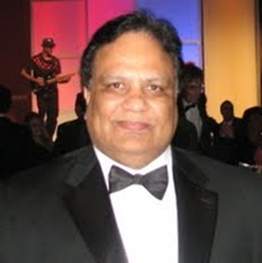 |
Dr. Vivek Varma
VP Consulting, Integrated Analytic Solutions, Chicago
|
Dr. Vivek Varma is a business and technology professional who has led global teams to grow multimillion dollar consulting business in Systems Integrations and Cloud Engineering Practice areas, and delivered Digital Transformation, M&A Integrations, Data & Analytics to Fortune-listed clients and Federal and State governments. He has over 20 years experience in industry and consulting (including 13+ years at Deloitte). At Nielsen IQ, he focused on serving global leaders in Consumer Packaged Goods industry. In the past, he has worked extensively in Financial Services, High Tech, Power & Utilities and Public Sector verticals. As a thought leader, he has presented his work at several international conferences and industry events. His topics of interest include Tech Trends, Applied AI, Disruptive Strategy/Innovation, and Leadership & Management. He holds BS and MS degrees in Industrial and Mechanical Engineering from Indian Institute of Technology, India, and Ph.D. from The University of Melbourne, Australia, in building Decision Support System for Sustainable Development. He has been active as mentor/coach (PMI Chicagoland et al.) and serves on the Boards of several not-for-profit organizations. Lives in Chicagoland with wife and children.
AI/ML: Industry Applications, Potential and Challenges
Recent explosion in AI/ML innovations has spurred tremendous industrial, research and entrepreneurial interest globally. From freely available AI tools on the internet to highly complex and expensive models at the other end of the spectrum, AI and its various flavors have potential of changing the way business is done and we run our lives today. Slow and steady transformation is already being supported and promoted by other technologies like cloud infrastructure and software services, data analytics, advanced connectivity etc. This paper presents a brief industry-wide survey of the latest tech trends. Further, it focuses on technologies that are transforming our lives and the way companies do business: (1) Artificial Intelligence/ Machine Learning (AI/ML), and (2) Cloud Computing as it supports AI/ML. A few success stories from industry will be reviewed with emphasis on challenges faced and lessons learned. The session is planned to be interactive. At the end of the session, participants will be better able to appreciate latest tech trends, and the transformative potential of AI/ML. They will also gain understanding of best practices and high level recommendations for applying AI/ML in their organization strategically.
Saturday, May 20, 2023
1:15 PM
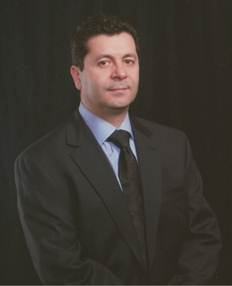 |
Tarek Lahdhiri, PhD, PE, PMP, BB-DFSS, SM-IEEE
|
Dr. Lahdhiri received the degree of MS-EE in Communication Systems in 1990 and the PhD degree in Control Systems in 1995. Dr. Lahdhiri is currently working for General Motors LLC in Warren, Michigan, where he is holding the position of Global Strategy Leader for Real-Time Control Systems Simulations and Automation within the Global Validation Department.
Dr. Lahdhiri is a licensed Professional Engineer (PE) in the State of Michigan, licensed Project Management Professional (PMP) by the Project Management Institute (PMI), and Master Black Belt DFSS certified by General Motors LLC.
Dr. Lahdhiri authored and co-authored over 16 journal papers and 35 conference papers and his areas of interest include Control Systems, Systems Engineering, Real-Time Modeling and Simulation, and Engineering Management.
Dr. Lahdhiri is a Senior IEEE member and has been leading several activities within the IEEE organization. Currently, he is the IEEE Region 4 (Central USA) PACE Chair, member of the IEEE-USA Career Professional Development (CPD).
Recently, Dr.Lahdhiri held the position of IEEE-USA Vice President of Career Member Services (2018-2019)
Dr. Lahdhiri is the recipient of the 2001 IEEE-USA Professional Achievement Award, the 2004 IEEE-USA Professional Leadership Award, and the 2007 IEEE-USA Citation of Honor Award, and the 2012 IEEE Region 4 Jack Sherman Award. Contact Dr. T. Lahdhiri
e-mail: lahdhiri@ieee.org
Electronic Control Units Development: V-Cycle
This workshop introduces the V-Cycle for the development of Electronic Control Units (ECU) in industrial applications. The workshop will explain the different phases of the V-cycle: Starting with the requirements, Modeling, rapid-prototyping, Code generations, Hardware-in-the-loop (HIL) testing, and calibration. Participants will learn basic techniques and tools used in the V-cycle. The workshop will include several examples related to automotive applications.
Saturday, May 20, 2023
2:45 PM
 |
Dr. Gina Martinez
Associate Professor of Computer Engineering
and the Director of Electrical and Computer Engineering programs
at Lewis University
|
Dr. Gina Martinez is an Associate Professor of Computer Engineering and the Director of Electrical and Computer Engineering programs at Lewis University. She earned a Ph.D. in Electrical Engineering and M.S. in Computer Engineering from Illinois Institute of Technology, and a B.S. in Computer Engineering from University of Illinois at Urbana-Champaign. As an educator, Gina is interested in engineering curriculum design, especially in providing accessible and inclusive engineering education to students of diverse backgrounds and learning styles. Her technical areas of interest include the internet of things (IoT), computer architecture and embedded systems. Dr. Martinez's current research involves the application of IoT and pervasive computing in engineering educational spaces and was recently awarded $206K by the National Science Foundation to develop smart classroom technologies and study their impact in engineering education.
Panel: Academia/Industry Forum: Engineering Talent Shortage in the US
The National Science Foundation has, for many years, reported that the rate at which the nation is graduating bachelor's degrees in engineering is not nearly enough to meet the demands of industries. In this forum, academics and industry leaders discuss the reasons behind this, the impact of this in their respective organizations, and share their insights into how this problem may be mitigated or resolved.
Panelists
Dr. Alvin Chin is currently the Chair of IEEE Chicago and Principal Data Scientist at RXO in
Chicago where he is working with other Data Scientists for creating and deploying data science and
machine learning pricing models in production. Previously, he worked for BMW as Innovation Engineer, AI and
Emerging Technology Researcher and Senior Machine Learning Researcher. Dr. Chin's research interests and expertise
are in data science and machine learning, artificial intelligence, ubiquitous computing and automation.
Dr. Chin has authored more than 30 publications and 10 patents, including pending. He received a PhD in
Computer Science from the University of Toronto, MASc in Computer Engineering from the University of
Waterloo and BASc from the University of Waterloo. He has previously worked for Nokia and Microsoft in
Beijing, China. Dr. Chin is active in the community in data science and machine learning meetups, as member of
various program committees of academic conferences, and has given more than 50 talks to universities, meetups and conferences.
Dr. RJ Nowling is an assistant professor of Computer Science at the Milwaukee School of Engineering (MSOE).
Dr. Nowling earned his Ph.D. in Computer Science & Engineering from the University of Notre Dame with research
in numerical simulations for computational chemistry and applications of machine learning and statistical
algorithms to genomics. In between his Ph.D. and faculty position, Dr. Nowling was a software engineer at Red Hat
with a focus on open-source scalable data-processing infrastructure and data science engineer at AdRoll (now NextRoll)
with a focus on building and maintaining ML production systems for digital advertising. Dr. Nowling's research
focuses on the application of machine learning and data science to genomics, provided research experiences
for 15 undergraduate students, and is heavily collaborative with biologists at Midwestern research universities.
Dr. Nowling teaches courses on algorithms, machine learning, and data science.
Dr. Dan Ezenekwe is currently an Associate Director in the New Product Introduction group of
Embedded Controls Engineering with Collins Aerospace, a division of Raytheon Technologies. Dan is an experienced engineer
with backgrounds in Telecommunications, Aerospace and Defense Technologies. Dan has been primarily engaged in
new product development, supporting the design, qualification, testing and manufacturing of fiber optic,
Electro-Optic, Missile Warning Sensors and Airborne electronic products. More recently, Dan has been
involved in the development of military ISR Sensor products to support the warfighter. He is currently
in a lead role at Collins Aerospace building the next generation airborne products to support the warfighter.
Dan holds a PhD in Mechanical Engineering (Mechatronics) from Georgia Institute of Technology and is an active member of ASME,
IEEE, sits on the board of SAE-Chicago and has several publications.
Dr. Ibrahim M. Abdel-Motaleb is a Professor and Director of Microelectronics Laboratory at Northern Illinois University.
Dr. Abdel-Motaleb has extensive administrative experience both in academia and industry. At NIU, he has chaired or served
on almost every committee at the department, college and university levels and has previously served as the Chairman of
the Department of Electrical Engineering and as Director of the Biomedical Engineering program. Dr. Abdel-Motaleb has held
various consulting positions, and has previously served as president of a construction company for civil and electrical
construction works with more than 40 employees. As a researcher, Dr. Abdel-Motaleb research interests include modeling,
simulation, and manufacturing of semiconductor devices, materials growth and characterization, IC fabrication, and many more,
and has extensive publications in this and other areas. Dr. Abdel-Motaleb holds a Ph.D. in Electrical and Electronics
Engineering from the University of British Columbia.
|
